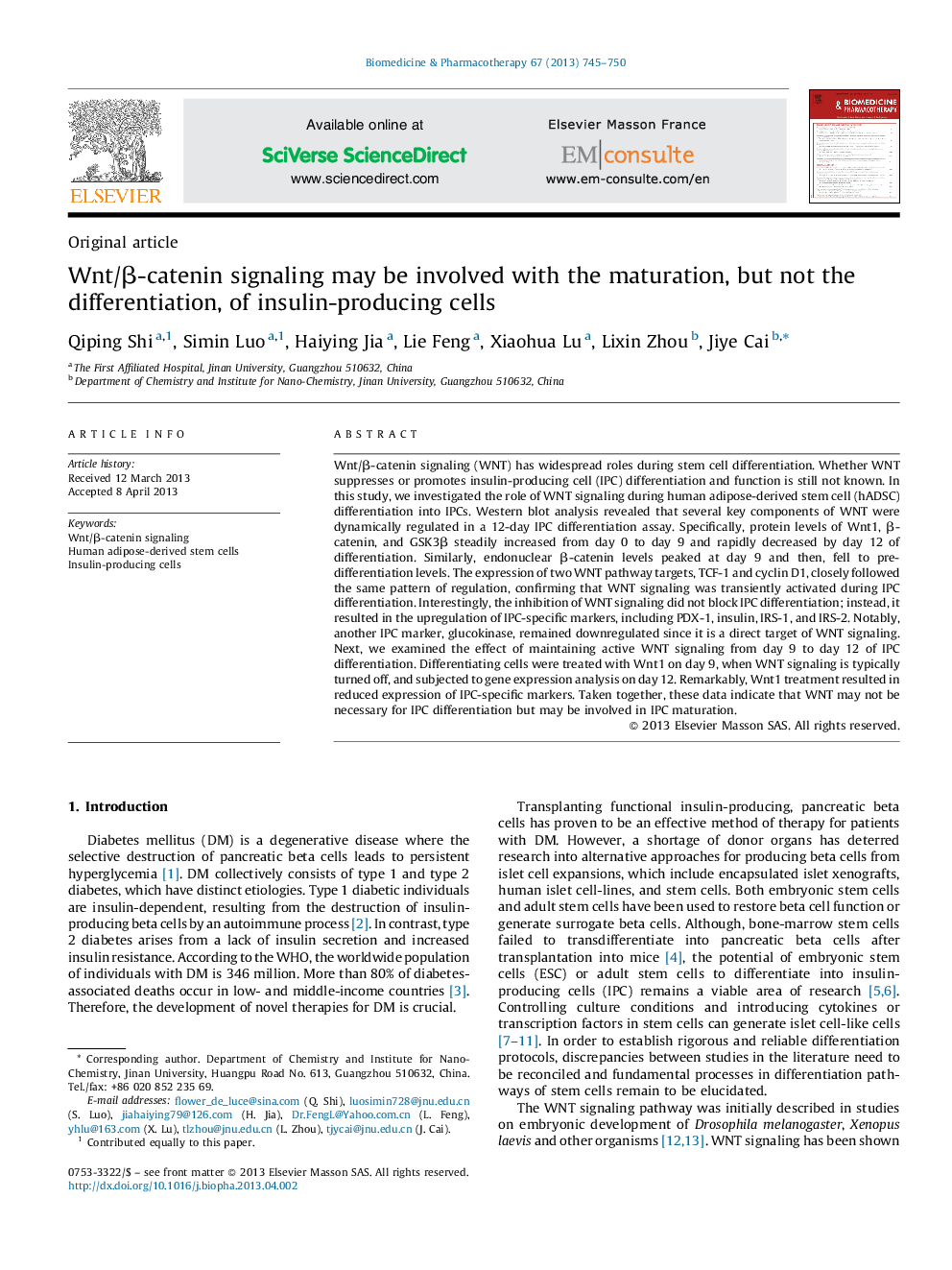| Article ID | Journal | Published Year | Pages | File Type |
|---|---|---|---|---|
| 2524380 | Biomedicine & Pharmacotherapy | 2013 | 6 Pages |
Wnt/β-catenin signaling (WNT) has widespread roles during stem cell differentiation. Whether WNT suppresses or promotes insulin-producing cell (IPC) differentiation and function is still not known. In this study, we investigated the role of WNT signaling during human adipose-derived stem cell (hADSC) differentiation into IPCs. Western blot analysis revealed that several key components of WNT were dynamically regulated in a 12-day IPC differentiation assay. Specifically, protein levels of Wnt1, β-catenin, and GSK3β steadily increased from day 0 to day 9 and rapidly decreased by day 12 of differentiation. Similarly, endonuclear β-catenin levels peaked at day 9 and then, fell to pre-differentiation levels. The expression of two WNT pathway targets, TCF-1 and cyclin D1, closely followed the same pattern of regulation, confirming that WNT signaling was transiently activated during IPC differentiation. Interestingly, the inhibition of WNT signaling did not block IPC differentiation; instead, it resulted in the upregulation of IPC-specific markers, including PDX-1, insulin, IRS-1, and IRS-2. Notably, another IPC marker, glucokinase, remained downregulated since it is a direct target of WNT signaling. Next, we examined the effect of maintaining active WNT signaling from day 9 to day 12 of IPC differentiation. Differentiating cells were treated with Wnt1 on day 9, when WNT signaling is typically turned off, and subjected to gene expression analysis on day 12. Remarkably, Wnt1 treatment resulted in reduced expression of IPC-specific markers. Taken together, these data indicate that WNT may not be necessary for IPC differentiation but may be involved in IPC maturation.
